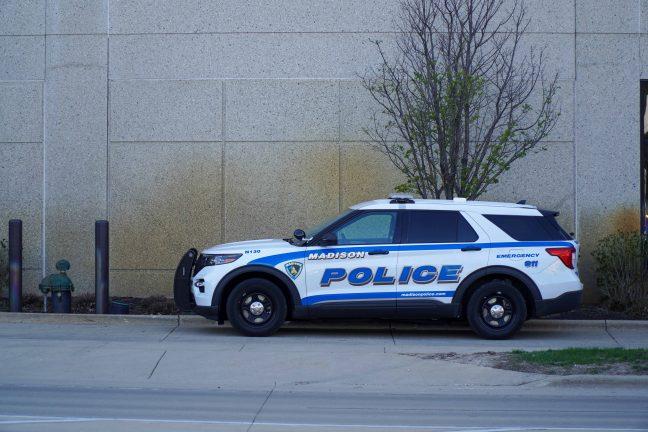In late August, Kenosha police shot 29-year-old Jacob Blake several times in the back, leaving him partially paralyzed and sparking protests in Kenosha, Madison and nationwide to end police violence toward the Black community.
In response to protests, Kenosha County implemented a ten-day curfew.
“After consulting with local law enforcement agencies, I have decided the curfew is no longer needed,” Kenosha Mayor John Antaramian said in a press release. “However, criminal activity will not be tolerated and arrests will be made if needed. I am hopeful there will be no need to reinstate the curfew in the near future.”
Despite the curfew, Kenosha police made 252 arrests from Aug. 23 to Sept. 3, according to Kenosha County’s website. Of those arrests, 132 were individuals who came from outside Kenosha County.
The arrests raised questions regarding how city budgets are used to stop crime. Community Power Building Coordinator for Freedom Inc. Mahnker Dahnweih advocated for a complete upheaval of the policing system and for moving funds to communities in need.
Dahnweih said Freedom Inc. provides support groups for those experiencing harm from their community or the state, such as police brutality and racial targeting.
Dahnweih said there is a myth that more policing makes communities safer, but Freedom Inc. hasn’t seen that.
“The safest communities we have in Madison are not the most policed, but the most resourced,” Dahnweih said. “It’s not the police who are keeping you safe, it’s the fact that you have everything you need.”
Professor of Public Affairs and Economics at the University of Wisconsin Tim Smeeding spoke of the challenges growing up in a highly policed neighborhood. Smeeding said communities of color have the most police because those areas have the most crime — which in turn means those areas don’t have the resources they need.
“But it is sort of an oxymoron in that sense,” Smeeding said. ”Because police are at a higher presence there, what do you think? More crime.”
Smeeding said that living in heavily policed communities also facilitates a higher incarceration rate, making it difficult for some to experience positive economic mobility.
Smeeding said any run-ins with the law are also noted on your record, which employers and landlords have access to, regardless of if they resulted in convictions.
“This makes it really hard for those who have a criminal record to get a job,” Smeeding said.
Dahnweih said she believes there needs to be a shift in the way we think and where our money is going.
“We need to make a strong intervention around how our money is being used,” Dahnweih said.
According to The Cap Times, Madison saw its policing budget increase from $60 million to $85 million in just the past 10 years.
The Cap Times also reported that while African Americans make up 7% of the Madison population, they made up 43% of the arrests made in 2018.
Dahnweih said she believes the mayor’s 20 year strategic plan is an example of poor budgeting. The plan calls to address racial inequalities in housing by implementing city home loan programs, but Dahnweih said that’s not enough to help the community.
Dahnweih called for an investment in services to support the city of Madison, including funding for well-resourced organizers, who can communicate with members of their community and recognize their needs, and better funding for housing, mental healthcare and education.
In a Facebook post listing demands after the shooting of Jacob Blake, Freedom Inc. said they are looking for a complete defunding of the police, shifting money to programs that would cater to the community’s needs.
Defunding the police also means other city programs would not need to have their budgets cut, Dahnweih said. While the mayor called for a five percent budget cut across all departments, Dahnweih said defunding the police would see an immediate 18% cut to the cities budget.
On the state level, Dahnweih said Freedom Inc. partners with Black and POC organizations around the state. One of their central demands is a demilitarization of the police response to protesters. Wisconsin Public Radio reported that in the beginning of June, 1500 National Guard troops mobilized in response to protests around the state.
Dahnweih said groups also asked for a redirection of funds to Black communities impacted most by the COVID-19 pandemic. The CDC reported that minority groups are being disproportionately affected by COVID-19.
“We’re looking at it from a holistic approach to the pandemic and the current uprising,” Dahnweih said. “We can not continue to add more firepower to an already volatile issue.”


